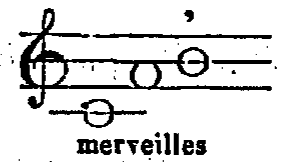Which dialect are we speaking? To know if you are communicating with another speaker of Symmetric, you may say "dosol, soldo?" to mean "We, ours?" which have no obvious meaning in other dialects.
Solsifasi Siresol

Over the many years of its existence, the Solresol language has evolved in subtle ways, principally through changes to its lower dictionaries as words went in and out of favor, and better reflected the interests of the communities that kept the language alive.
- François Sudre: Original specs. Fasol: Voici.
- Boleslas Gajewski: Revised specs. Fasol: Why?
- Modern Solresol: Community specs. Sisol: Honorific Particle.
- Symmetric Solresol: Wiktopher specs. Mido: Your(sing).

Modern Symmetrical tries to address a few issues at once. Its central focus is to facilitate the learning of the language and its communication by clustering similar words together by using Solresol's syllabic inversion, so one need only learn wet to know how to spell dry.
The second point is to remove artifacts of the French language present in the grammar, as well as terms pertaining to Christianity in the lower dictionaries, to begin approaching the language's original point of doing away with at least some linguistic biases.
| Sudre, Langue Musicale Universelle | |||||||
|---|---|---|---|---|---|---|---|
| -do | -re | -mi | -fa | -sol | -la | -si | |
| Do- | (past) | I, me | you | he | self, oneself | one, someone | other |
| Re- | my, mine | (pluperfect) | your, yours | his | our, ours | your, yours | their |
| Mi- | in order to | that, which, who | (future) | whose, of which | well, well done, good | here is, behold | good evening |
| Fa- | what? | that, that one, those | this, this one | (conditional) | here, here is, this is | good, tasty | much, very |
| Sol- | nothing, null | why? what for? | wrong, ill (adv) | because | (imperative) | always | thank, thanks |
| La- | yesterday | today, this day | tomorrow | bad | never | (present participle) | of, about |
| Si- | how | each, every | good morning | little, scarcely | mister, sir | madame, ms | (passive participle) |
| Gajewski, Grammaire du Solresol | |||||||
|---|---|---|---|---|---|---|---|
| -do | -re | -mi | -fa | -sol | -la | -si | |
| Do- | (past) | I, me | you | he | self, oneself | one, someone | other |
| Re- | my, mine | (pluperfect) | your, yours | his | our, ours | your, yours | their |
| Mi- | in order to | that, which, who | (future) | whose, of which | well, well done, good | here is, behold | good evening |
| Fa- | what? | with, jointly | this, this one | (conditional) | why, for what reason | good, tasty | much, very |
| Sol- | but | in, within | wrong, ill (adv) | because | (imperative) | always | thank, thanks |
| La- | nothing, no one | by | here, there | bad | never | (present participle) | of, about |
| Si- | same thing | each, every | good morning | little, scarcely | mister, sir | man, bachelor | (passive participle) |
| Modern Solresol | |||||||
|---|---|---|---|---|---|---|---|
| -do | -re | -mi | -fa | -sol | -la | -si | |
| Do- | (past) | I, me | you | they(sing.) | self, oneself | one, someone | other |
| Re- | my, mine | (pluperfect) | your, yours | their(sing.) | our, ours | your, yours | their |
| Mi- | in order to | that, which, who | (future) | whose, of which | well, well done, good | here is, behold | good evening |
| Fa- | what? | with, jointly | this, that, these | (conditional) | why, for what reason | good, tasty | much, very |
| Sol- | but | in, within | wrong, ill (adv) | because | (imperative) | always | thank, thanks |
| La- | nothing, no one | from, by, through, via | here, there | bad | never | (present participle) | of, about |
| Si- | same thing | each, every | good morning | little, scarcely | Respectful title | Affectionate title | (passive participle) |
| Symmetric Solresol | |||||||
|---|---|---|---|---|---|---|---|
| -do | -re | -mi | -fa | -sol | -la | -si | |
| Do- | (past) | I, me | you(sing.) | they(sing.) | we | you(plur.) | they(plur.) |
| Re- | my, mine | (pluperfect) | what | without, alone | outside, outer | known | none, nothing |
| Mi- | your(sing.) | that, who, which | (future) | whose, of which | well(adv) | near, here | good evening |
| Fa- | their(sing.) | with, jointly | this, that, these | (conditional) | why, what reason | positive, tasy | much, very |
| Sol- | our | within, inside | wrong, ill(adv) | because | (imperative) | always | thanks |
| La- | your(plur.) | unknown | far, there | negative, bad | never | (present participle) | Respectful title |
| Si- | their(plur.) | each, every | early, morning, day | few, scarcely | sorry | Affectionate title | (passive participle) |
Symmetry
A unique feature of Solresol is that it can express opposite meanings by reversing the words, syllable by syllable. For instance fala means good or tasty, and lafa means bad. Unfortunately, this attribute was used only occasionally in the table of two syllables, mostly abandoned in the table of tree syllables, and altogether ignored beyond.
Symmetrical: Every word of the two-syllables table is reversible except for the question words. Pronouns are reversed to their possessive forms(you, yours). And most non-special words of three syllables are reversible.
A few symmetrical words from the original dictionary were kept unchanged even if their polarity(the orientation of the positive term) seems to be contrary to the rest: dolami, dolasol, dosimi, redomi, mifado, ...
Gender
In traditional Solresol, grammatical categories are distinguished by the position of an accent over the notes, indicating that the note should be lengthened. A verb is unstressed throughout, the noun is stressed on the first note, the adjective on the next-to-last, and the adverb on the last. The feminine is marked by final stress. By default, all animate nouns and pronouns imply that they are of male sex. To differentiate the female sex, a bar, hyphen or macron is added to the final syllable of the corresponding article or the word itself.
As of modern Solresol, pronouns no longer change depending on gender. The definitions of sila and lasi are part of an honorifics system inspired by what is used in Japanese; both are gender-neutral titles, one to be respectful, and one to be affectionate.
Symmetrical: Is non-gendered, the original versions of the language overly emphasize words like mister and bachelor, present in the two letter estate, these are all gone.
Christianity
There are many words of 3 syllables relating to Christianity(the trinity, holy virgin, christ, etc..) cluttering the two and three syllable dictionary, for the language to be inclusive, it should do away with these altogether.
Symmetrical: These words have been replaced to make space for symmetries.
Proper Nouns
Sudre originally specified an encoding for proper nouns in which the Consonants(2) rows are repeated notes, the Consonants* rows are accented on the first syllable, a feature that is not present in Symmetric Solresol.
| do | re | mi | fa | sol | la | si | |
| Vowels | a | eu | e | i | o | u | ou |
| Consonants* | p- | n- | k- | f- | j- | ||
| Consonants(2) | s- | t- | r- | v- | m- | l- | d- |
| Consonants(2)* | z- | b- | gu- | ch- | x- |
Similarly to Japanese, these extra phonemes are only ever used to approximate sounds and will inevitably create homophones.
Symmetrical: There are no mechanism for proper nouns and a phonetic alphabet.
Numerals
Solresol has the french habit of forming numbers like ninety five, by using eighty-fifteen.
Symmetrical: These words have been left unchanged, seventy and ninety have not been added. Adding them would not do much good, use extra word allocations and offset Sudre's numbers. Perhaps a future reform will decide to address this. Zero is dodore.
Questions
To create questions, Gajewski placed the subject of a sentence after the verb, a construction common in European languages. Unfortunately this often collides with indirect objects that must come after the verb, the ambiguous syntax still remains in Modern Solresol.
Symmetrical: Questions are terminated with sol, similarly to Japanese sentences ending with か.
